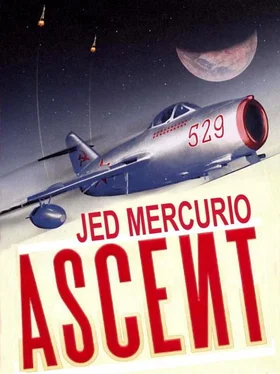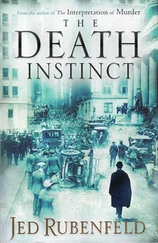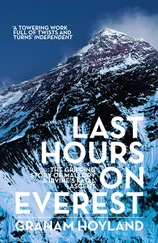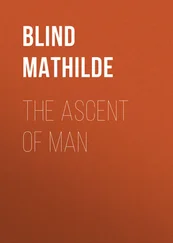
Stalingrad
1946
TWENTY MILLION COUNTRYMEN died in the Great Patriotic War and his whole family was among them.
His bare feet left footprints in the dirt as the men led him from the farm. Then they set the ruined buildings alight. What had been his life to this point vanished into smoke.
Rain began to fall. The boy watched it puddle the dirt. It obliterated his footprints and, while he waited, the wheels of passing carts and trucks cut swaths in the muddy road, but in time the rain also wiped these away.
He travelled to the ruined city in a farm lorry with his only possessions in a sack. From factories came the pounding of metal. The noise passed up from the earth like a groan.
By the time they reached the orphanage, night had fallen. The other boys watched him being led into the mess hall. He was big for his age, so therefore a target. There was only time for a bowl of broth, then it was lights-out.
Frost glistened on the window panes, but the oil ration went to the factories so the stoves at each end of the dormitory remained unlit. He was accustomed to the silence of the countryside, but in the city the pounding of machines continued through the night. There was so much to repair, so much to rebuild.
As soon as he fell asleep, two of them held down his arms while a third jumped on his chest and beat him about the face. The other boys expected him to cry himself to sleep, but he was done with crying.
In the morning blood stained his pillow, one of his teeth lay on the floor, and his sack was empty.
At inspection the warden paused at his bunk. “New boy?”
He nodded.
“Name?”
“Yefgenii Mikhailovich Yeremin.”
“What’s all this, then?”
The other boys stared straight ahead. None would ever admit having seen or heard a thing. Yefgenii remained silent so he was deprived of breakfast and instead made to scrub his own sheets. That night they left him alone but that was part of their game. They dragged another boy out of his bunk and buggered him over the stove that was unlit for lack of oil and Yefgenii curled up and tried to sleep. Being sent here was like being flung down a well. No one cared that it was cold and dark and no one cared if he ever climbed out.
Often the boys were made to work as unpaid laborers. A bank of mist and drizzle rolled off the Volga, making some of the boys stiffen in the cold, but Yefgenii kept on. He was strong. He was used to hard labor. There was soot in the air that made his spit turn black.
The rest of the time they were given schoolwork. In the main they were taught the history of the October Revolution and the facts proving that no nation had sacrificed more than theirs in the defeat of fascism, but they also practiced arithmetic, some trigonometry, sometimes a little algebra. They chanted multiplication tables. Babak chanted the loudest. He was the one who’d given Yefgenii his beating on the first night. When the teacher asked a question, no one’s hand went up but his. This seemed to be the protocol and, though he often knew the answer, Yefgenii was wise enough to conform.
Afterward there’d be a fight in the yard. Babak’s two comrades were Pavlushkin and Boytsov. They’d stand by while Babak picked an argument with one boy or another and, whether the boy answered back or not, it always led to a battering. Sometimes it was concluded in the yard. Sometimes Babak finished it in the dormitory after lights-out.
One day the schoolmaster called out Yefgenii’s name. Yefgenii stood to attention. “Yeremin, your mathematics is exemplary.” He’d scored full marks in arithmetic and had advanced to the top of the class in trigonometry and algebra. Babak glared at him. The other boys stared straight ahead as they did at dormitory inspection.
The master set the boys a quadratic equation. Almost at once Babak claimed to have the answer but he’d made a mistake. The master called on Yefgenii and he answered with the correct solution. In the yard the other boys knew what was coming so they stood away. Boytsov and Pavlushkin held Yefgenii’s arms and Babak hit him in the stomach till he vomited.
“Lick it up, farm boy. You eat cow sick, you eat chicken sick.” They pushed his face in it and fish-hooked his mouth open but he wouldn’t lick it.
That night they yanked him out of his bunk. He glimpsed eyes closing, all the other boys pretending to be asleep, as they dragged him over the floorboards to the stove. Pavlushkin stretched him over it by the wrists while Boytsov pushed his head down. He felt cold metal pressing into his cheek. He could smell rust and last winter’s oil, he could taste them.
“Here’s your lesson, Yeremin.” Babak ripped down Yefgenii’s trousers and long johns then with a noise that was half snort and half laugh he dropped his own. Yefgenii heard his breath quicken, heard the slapping sound of Babak making himself hard. With his palms Babak parted Yefgenii’s buttocks and made the first stab. He used his thumb then tried feeding his dick in with his fingers. Yefgenii couldn’t help crying out. Babak couldn’t get it in. Boytsov grasped a fistful of Yefgenii’s hair and battered his head on the top of the stove. It made a clanging sound that reverberated through the dorm. No one opened their eyes. No one stirred. Boytsov pressed Yefgenii’s head down with all his weight and with his other hand he clamped his jaw shut. Then Babak tried again and this time he was in. To Yefgenii it felt like a balloon was being inflated inside him. He felt an urgent excruciating need to defecate and, if he didn’t, then his insides would burst. Each thrust felt like a rod piercing his pelvis from back to front while his breastbone bashed against the stove. The pain was in his viscera and in his bones. He wailed but Boytsov held his jaw shut so the sound came out as gasps with spit spraying out between his teeth and tears and snot streaking his cheeks. Babak finished with a long sigh. They pushed him onto the floor and took turns kicking him in the ass and then they returned to their bunks. A little later Yefgenii crawled back into his. As his eyes closed, he remembered his family’s farm. He remembered the fields and the open sky. He tasted again his aunt’s cooking, glimpsed his father and brothers sit round the table in their uniforms. His past was a dream, the present was wakefulness. Here came the day, the work to be done, the obstacles to be overcome.
Blood and semen stained his sheets. The warden asked him for an explanation but Yefgenii wouldn’t break his silence. He was denied breakfast and, though he had difficulty walking, he was made first to scrub his sheets and then to join a detail working in a bombed building. The boys were recovering bricks from the ruins and carrying them by hand to laborers who were laying fresh foundations nearby. Snow was falling in flurries. It was black. Flakes peppered Yefgenii’s blond hair and his lashes. He did a full day’s work.
The next day the warden led him to the director’s office. The director of the orphanage wore a crumpled gray suit. He coughed all the time and a wheeze punctuated the end of every breath. He missed many days through illness. “Your schoolwork is excellent, Yeremin. You’re aware of the scholarship, of course.”
Yefgenii shook his head.
The director coughed so hard it bent him double. “One boy… a suitable boy… each year, one boy out of all the orphanages goes to the Air School at Chkalov.”
Yefgenii shook his head again. He didn’t understand.
“The Commandant… an important man… he was…” He coughed again and again and he had to pull a handkerchief from his pocket and fill it with phlegm. “He was an orphan.”
Читать дальше













